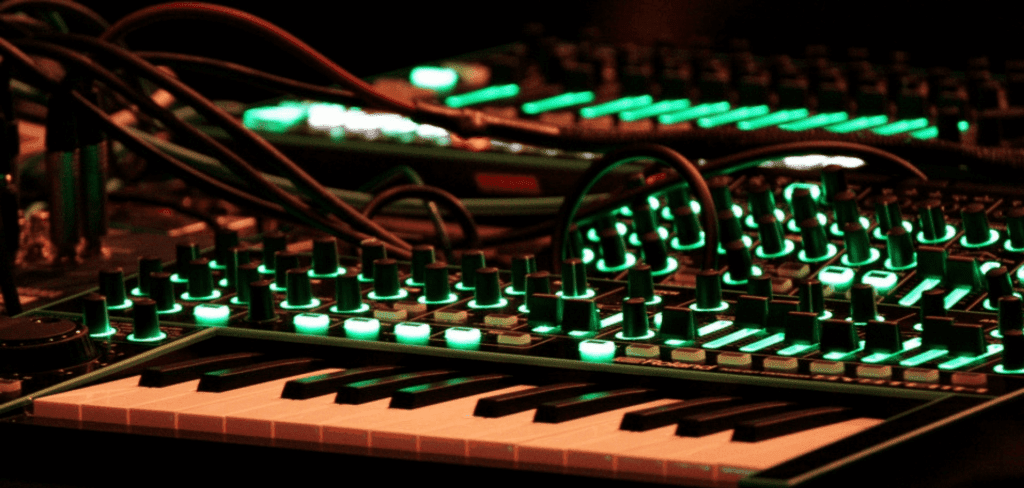
With technological developments driving it forward, is the music industry now just an offshoot of the tech industry?
This month George Howard, an associate professor at Brown University and Berklee College of Music, made a provocative announcement:
“I don’t believe there is a music industry anymore. I believe there’s a tech industry that certain companies are focusing their technological efforts on; I believe that’s what’s going on. You could make that argument that that’s true of all companies, all industries. There’s no education industry, there’s just a tech industry…But I think it’s still sort of a useful framework.”
Depending on how you define it, the music industry has been around for almost a century, so to say it has been absorbed by another industry is a bold statement indeed. But is there any truth to it?
Investors don’t see the difference between tech and music
Howard’s statement, as told to marketing magazine The Drum, was unpacked later in the interview. Howard said that a recent wave of investment in music-related companies has only come because companies are selling their businesses as tech firms with a music focus, rather than as music companies, even if that might not be the case.
In this sense, he suggests that many companies in the industry are choosing, or are forced, to present themselves as tech companies in order to secure larger investments. Howard’s own company, Music Audience Exchange, focuses on connecting bands to audiences through brand partnerships.
In a press release, the company said: “We’re aligning brands, their agency partners, and artists and empowering them to connect deeply with audiences through music.” MAX appears to do that by amassing data on consumers’ listening habits to help brands chose what kind of music they should be using to advertise their products.
MAX recently secured $6 million in funding from venture capital investors. And they’re not the only music startup to receive that kind of funding; Dubset, the company whose software allows artists to collect royalties from online remixes, has recently raised $4 million from investors, as has Amper, a company that specialises in AI music.
These companies are bound to change music as we know it, as have many similar technology-focused companies of the past, but rather than being a part of the music industry, Howard argues, they are simply tech firms with a music focus. It’s clear where Howard is coming from, but to say that this is a new state of affairs ignores the music industry’s long history with technology.
The music industry has always been about technology
The truth is, it is sometimes hard to draw the line between where the music industry ends and the tech industry begins. Thomas Edison’s invention of the phonograph cylinder is the clearest early example of this. Edison’s invention was a technological marvel, and the man himself undoubtedly focused on technology over music in his broader career, but the phonograph cylinder set the wheels in motion for many future innovations that would allow listeners to play the music they liked at home.
Since then, the inventions of the 78 rpm record, the 33 rpm LP and 45 rpm single, the tape and the CD continued to change the way music was distributed. Now, with digital downloads and online streaming as the distributional mode of choice for many, commentators are starting to conflate the music and tech industries in a way that they did not previously. Perhaps this is due to our tendency to lump all things internet together in one basket, when really the internet is just a new platform with myriad capabilities, just like radio and television were.
Similarly, the more recent technological inventions that are driving the music industry would clearly have been considered part of that very industry were the internet not involved. Howard’s own MAX technology, and other Big Data and music applications, are simply amplified versions of marketing and PR firms, using algorithms to find out what music listeners like instead of polls or Nielsen-style ratings.
Then, there is the way technology has always been important to the music that we actually hear as listeners, or play and produce as musicians. It’s clearer to us, as electronic music fans, that musical innovation can be closely linked to technological innovation. Just look at the history of the Roland TR-808, the history of the Roland TR-909, the history of the Yamaha DX7, and many other electronic instruments.
Roland, Yamaha and their contemporaries are undeniably music industry titans, and yet everything they do is underpinned by technology. This same logic could be applied to the behind-the-scenes software side of the music industry just as much it could to the instrumental side. So if you apply this logic or not, the music industry is thriving.
Image by Music Tech Fest – Graham Massey, CC BY 2.0, Link

